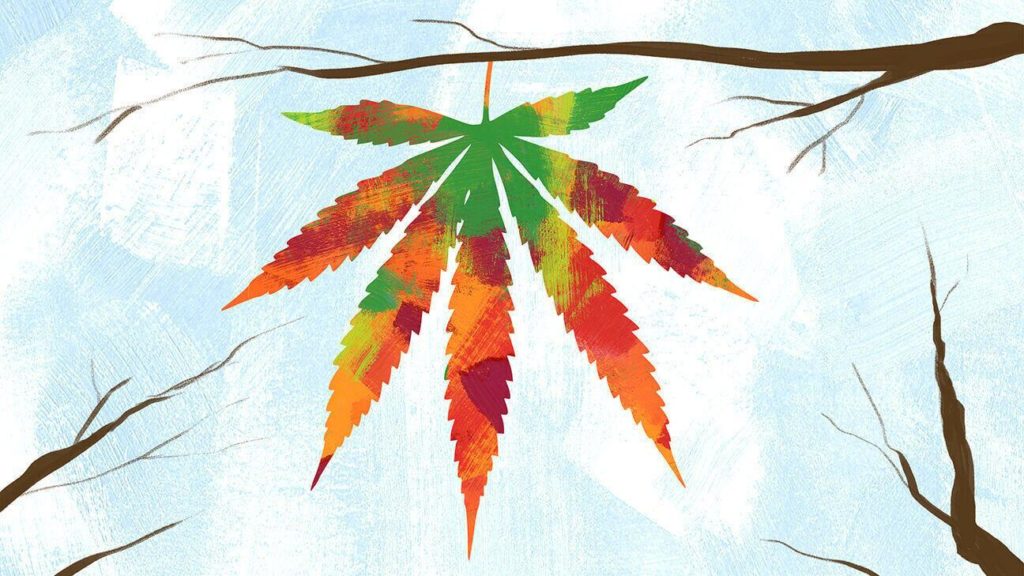KPVI
Cannabis retailers in San Francisco have seen better days.
After a steady rise through the early stages of the COVID-19 pandemic, cannabis sales in San Francisco have plunged thus far in 2022, according to data reported by retailers to state regulators.
Cannabis retailers in San Francisco saw $72.4 million in sales in the second quarter of 2021. In the same quarter this year, they reported $57.4 million in sales, a decline of about 21%. In the third and most recent quarter, they dipped a bit further to $56.9 million.
San Francisco is not alone in this trend.
Statewide, taxable sales of cannabis peaked at $1.56 billion in the second quarter of 2021. They dipped to $1.27 billion in the third quarter of 2022, according to data compiled by the California Department of Tax and Fee Administration.
Amid these issues, The City will again delay the implementation of a cannabis tax that would generate millions of dollars to bolster its coffers, but drain cannabis businesses who say they’re already struggling.
Drakari Donaldson, CEO and owner of the California Street Cannabis Company: “Another tax is the last thing that we need.”
When voters adopted the tax in 2018, it was expected to bring in as much as $16 million starting in 2021. But it was never implemented, as the Board of Supervisors repeatedly moved to protect a fledgling legal cannabis industry.
Supervisors voted this month to delay the tax for another three years. An updated city estimate suggests the tax would have brought in about $31 million in revenue over that period.
The City could surely use the cash as it recovers from the COVID-19 pandemic, supervisors who objected to the length of the delay — Aaron Peskin and Connie Chan — noted during debate over the proposal.
But the proposal’s supporters said the heavy burdens already faced by cannabis retailers who, in addition to paying the same taxes as other businesses, are forced to charge a 15% cannabis excise tax imposed by the state.
Cannabis retailers have painted a grim picture.
“Right now, the California cannabis market is in absolute free fall,” Johnny Delaplane, president of the of the San Francisco Cannabis Retailers Alliance, testified at a committee hearing earlier this month.
A report issued by the San Francisco Controller’s Office in September settled on three factors cited by retailers for the lackluster sales performance — the heavy tax and regulatory burden, the overproduction of marijuana in 2021 that resulted in a price drop and the persistence of cannabis on the illegal market.
California taxes sales not just of cannabis itself, but cannabis-related products like grinders. The data also inherently leaves out marijuana sales on the illegal market. California voters legalized recreational use of marijuana in 2016, and legal sales began in 2018.
“Legal cannabis businesses are already being squeezed for every penny by the state and federal government through over taxation and the overall cannabis industry is currently in a recession, and another tax is the last thing that we need,” Drakari Donaldson, CEO of California Street Cannabis Company, told supervisors.
Meeting the government’s demands is far from the only challenge.
“I don’t think that we are coming across any new users anymore in this area. There’s an increase in competition right now, and with that increase comes that we’re all still fighting for the same piece of pie, and that pie hasn’t gotten any bigger,” Donaldson told The Examiner in an interview.
California Street Cannabis Company opened its first store on Nob Hill in 2020, and a second on Clement Street in the Inner Richmond District. They try to offer carefully curated products that support the local cannabis ecosystem and share their values, such as those that are minority or LGTBQ owned.
Joel Engardio, candidate for Supervisor District 4, speaking to resident through a doorbell camera
But it’s tough to prioritize the quality and provenance in a saturated market.
“It’s kind of like a race to the bottom. You have these companies that get on the shelves at a really low price, and to the consumer they obviously want the best bang for the buck,” Donaldson said.
In October, Attorney General Rob Bonta announced a new effort aimed at putting a dent in the illegal cannabis market, which businesses on the up-and-up decry as cutting into their revenue.
But the illegal market persists. The City estimates that about two-thirds of cannabis sales are underground.
Delaplane said that a pound of marijuana can be had on the illicit market for $100.
“That puts us retailers that are following the laws at a significant disadvantage. We need tax relief in order for our businesses to survive,” Delaplane said.
Given those challenges, San Francisco leaders were reluctant to pile on.
“A joint is already taxed at over double the rate of a bottle of wine or cocktail, and 9% higher than a soda. We cannot expect legal cannabis operators to effectively compete with the unregulated market while adding new taxes,” said Supervisor Rafael Mandelman, who sponsored the delay, in a statement. “Delaying the effective date of this tax supports business owners who have opted into the legal cannabis market despite significant challenges.”
But not having a local tax leaves San Francisco as an outlier.
“Larger neighboring jurisdictions currently have some level of local tax in effect. While many larger neighboring peer cities and counties have reduced local taxes in recent years, San Francisco is the largest with no current tax currently in effect,” the controller’s report notes.
But cannabis retailers are adamant they need a reprieve.
Not only are cannabis businesses federally taxed, but section 280E of the Internal Revenue Code does not allow them to deduct business expenses to lower their tax obligations in the way that other businesses do.
“We didn’t know how tough it was going to be to see change, and we didn’t know how long we were going to have to go through the rough part of building an industry,” Donaldson said.
H/T: www.kpvi.com



